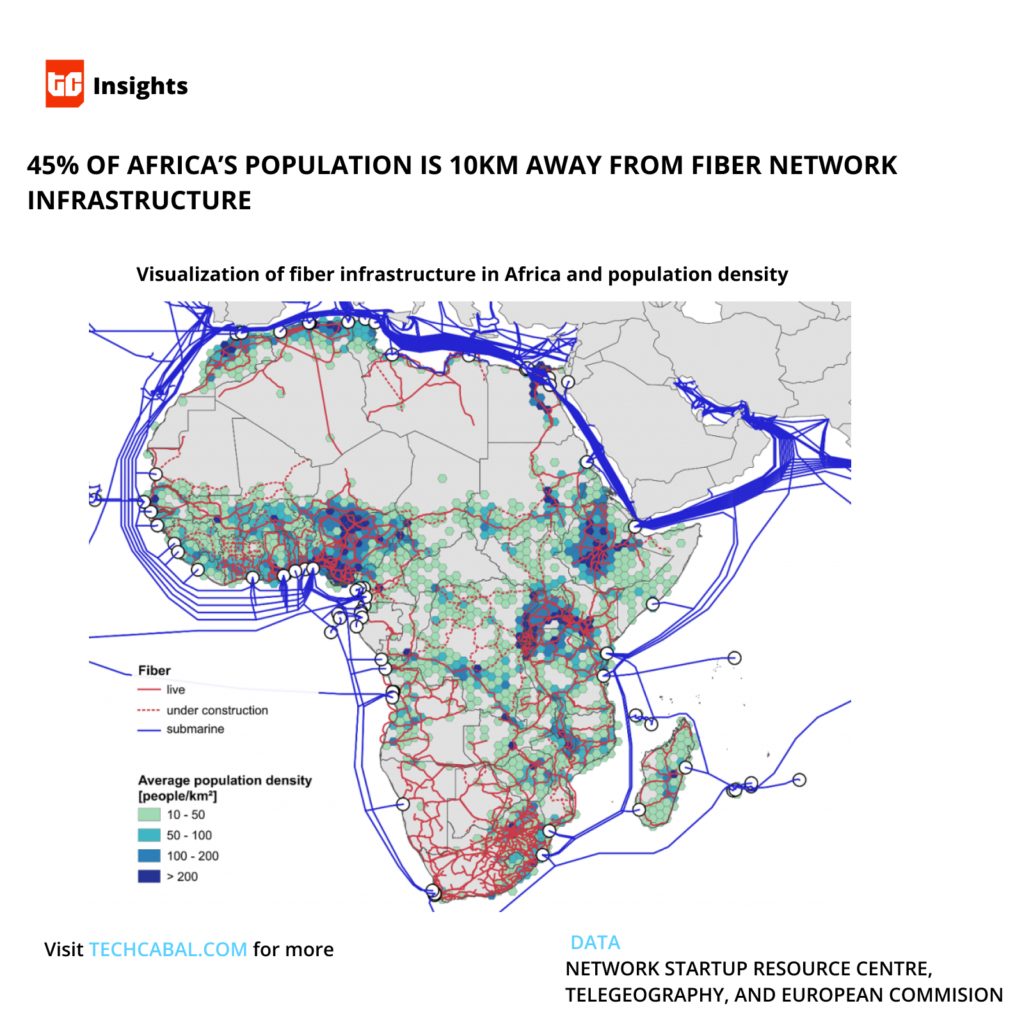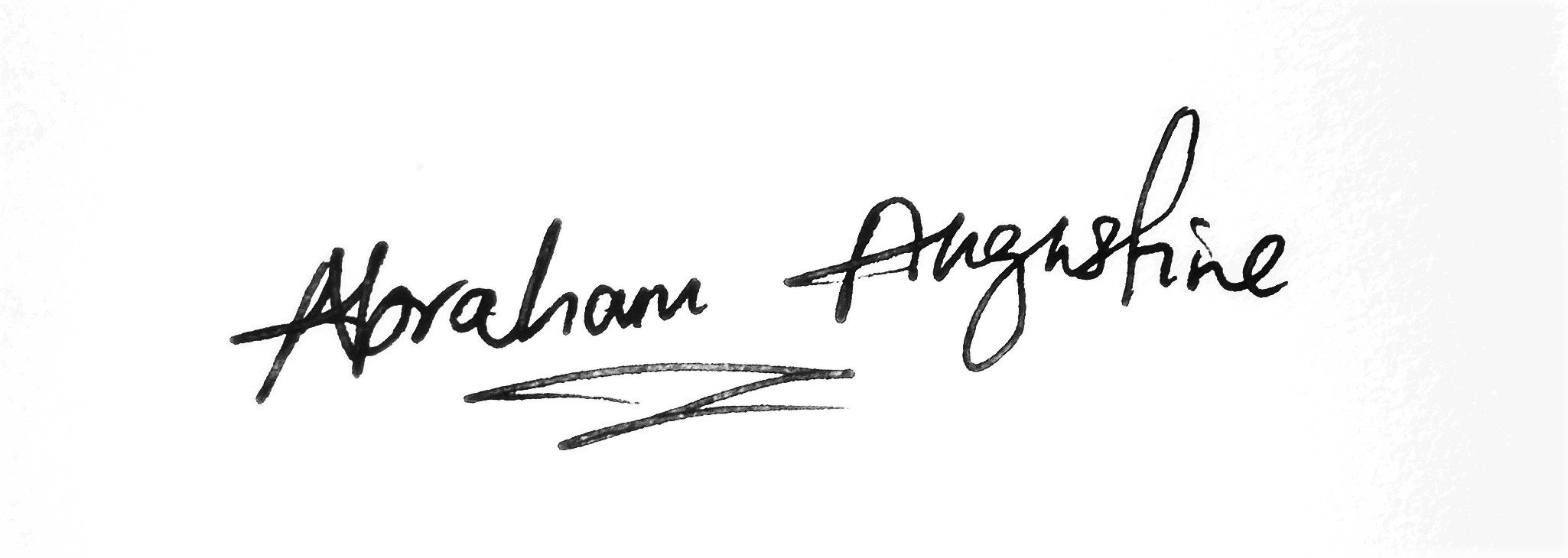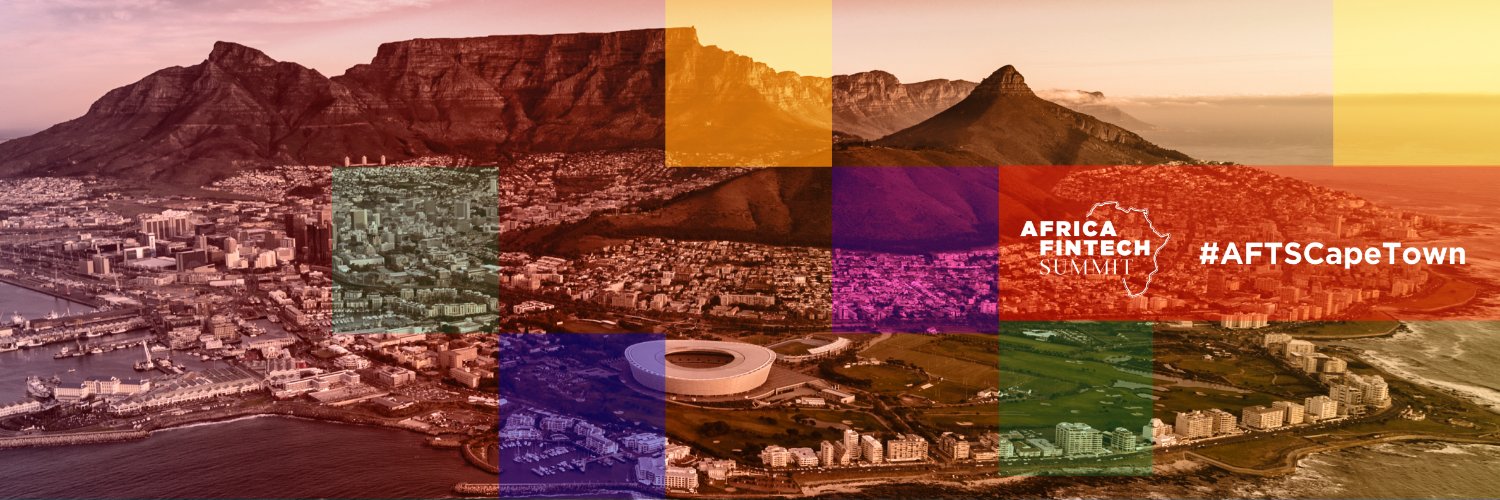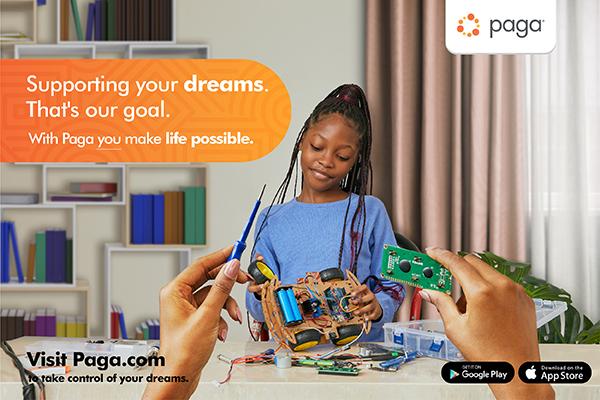What does a digital economy look like? Part 2. Read the previous essay here.
Africa lacks the infrastructure it needs to create a sustainable digital economy even as its ecosystem manifests as a dependent outcrop of developed digital economies elsewhere. It is a new form of colonisation, but even this digital colony is nothing like activists make it out to be. It is self-imposed; only coordinated ambition can change this.
Broadly speaking, digital infrastructure includes the connection networks that form the internet, fixed broadband, mobile telecommunications, communication satellites, data centres, and more. Digital infrastructure also includes the tools and a vibrant talent pool required to create the pieces mentioned in the last sentence.
African states lack the infrastructure, ambition and vision needed to create a digital economy. Global goodwill is not a sustainable alternative.
On all the points mentioned above. Africa is severely lagging. And for the last two components of digital infrastructure—infrastructure creating tools and a vibrant local talent pool—Africa is completely missing. For example, Africa hosts just two percent of all the colocation data centres globally, and despite an increase in subsea cable landing that continues to grow, the continent has one of the worst inland broadband connectivity ratios in the world. TechPoint Africa reported MainOne’s Funke Opeke as saying that the MainOne cable, with a capacity of 10 terabits only operates at 10% capacity, 10 years after the cable first landed.
If African states are to participate competitively in the global economy, we must realise how much of a roadblock Africa’s internal digital infrastructure deficit is.
An internalised deficit
In my last opinion piece, I mentioned that Africa lacks a digital economy. A broader (and nicer) assessment would have been that Africa’s digital economy—what we call the digital economy, anyway—is simply an outgrowth of digital economic systems elsewhere. That is to say, we are piggybacking—building an entire digital ecosystem on top of a volatile collection of external geopolitically exposed infrastructure.
In a perfect world, this is not a problem at least if you are trying to come up to speed. In a perfect world, African states would actually be trying to come up to speed. But the world is far from perfect. And Africa’s leaders in business and politics are resigned to the eternal fate of catching up. With grandiose statements about a digital transformation—that is really only digital consumption—as weak comfort. It is almost as if we have accepted our self-created fate and relegated political leadership on digital infrastructure to collecting dubiously named “right-of-way” fees on fibre cables.
But African states lack the infrastructure, ambition and vision needed to create a digital economy. Unfortunately, as a pandemic and the aftermath continue to show, global goodwill is not a sustainable alternative.
The point of this essay is to argue for more ambition, and more vision as opposed to a casual resignation from the government to academics, entrepreneurs and even consumers. It is a tall order, which is precisely why I am making it. Africa suffers from a critical lack of ambition beyond good roads and respect for basic laws. A low bar does not encourage athletic progress—or any progress for that matter.

Mobolaji Idowu / TechCabal Insights. Chart courtesy of Network Startup Resource Center, TeleGeography, and European Commission.
Having established that, let us proceed with a question. What sort of infrastructure do you need to create a truly digital economy?
Like any trade system worth its weight in global politics, digital economic systems are susceptible to great power rivalry. In my book, it comes only behind energy and food commodities. So, a truly digital economy will stand on three infrastructure legs:
- Producer infrastructure. The tools that create infrastructure.
- Transmission infrastructure. The backbone networks of digital systems.
- Consumer infrastructure. How you and I receive, use and create digital services and content.
Consumer infrastructure is often the focus of investment conversations about digital infrastructure financing in Africa. Transmission infrastructure readily comes up in investment considerations, but because of how niche it is, it is often given the light touch in conversations about Africa’s digital ecosystems.
Read: Protocol is helping users navigate the DeFi and NFT space on one platform
There is also an assumption with transmission infrastructure that Africa simply has to take (mostly choose between binary) what is available with geopolitical undertones. The result of this is that Africa’s transmission infrastructure conversation is oozing with geopolitical verbiage that characterises great power rivalry. As China’s Huawei and ZTE build e-government platforms, 3G networks and national fibre networks across Africa, US-aligned technorati work to counter growing Chinese influence with their own initiatives. The missing voice—indeed the most important voice in the conversation—is an African plan for infrastructure that is sufficiently free from global risks.
As if to help make my point, US president Joe Biden, earlier this week, introduced new measures that will, according to Western US-China analysts, “decapitate” China’s semiconductor industry. The semiconductor industry, a complex globally integrated value chain with its main output hubs in Taiwan and the United States, makes up what I call producer infrastructure. Of course, Africa is nowhere to be found in that conversation.
Some people think we should not think so far and should only bother ourselves with these complex infrastructure problems. They believe that if we focus on fixing consumption all will be well. Such a focus is defeatist and only breeds digital value extraction, from which politicians will collect rent and fees, investors will collect returns, a few lucky entrepreneurs make a profit and the general society remain stagnant and uninspired. As I said earlier (albeit differently), the problem with aiming low is that you may shoot at your feet.
Skills infrastructure
The move by the US that “decapitated” China’s semiconductor industry earlier mentioned utilised China’s reliance on “skill infrastructure” from the United States. Almost overnight, China’s chip factories were brought to an almost standstill because the US asked talent to choose between a pay cheque and a US identity.
Digital literacy is more than being able to consume digital services from a smartphone, or even create these services. African universities need to reorient around the physics (literally and figuratively) of a digital economy and begin to become more than government-dependent centres of stagnated rote learning—or we’re not serious.
At the same time, African economies need to grow enough to create significant room and demand for African talent. I admit that is a tough ask—nothing short of a miracle. But there are only so many Africans that will work or integrate elsewhere, because of the human disease of racism. And there is so much opportunity for African states to create an internally valuable digital economy that is also globally relevant and sufficiently free from geopolitical fallout.
There is no vibranium, no Wakanda magic (sorry Ghana). We just have to think bigger and farther.
We’d love to hear from you
Psst! Down here!
Thanks for reading The Next Wave. Subscribe here for free to get fresh perspectives on the progress of digital innovation in Africa every Sunday.
Please share today’s edition with your network on WhatsApp, Telegram and other platforms, and feel free to send a reply to let us know if you enjoyed this essay
Subscribe to our TC Daily newsletter to receive all the technology and business stories you need each weekday at 7 AM (WAT).
Follow TechCabal on Twitter, Instagram, Facebook, and LinkedIn to stay engaged in our real-time conversations on tech and innovation in Africa.

Abraham Augustine,
Senior Writer, TechCabal.





























